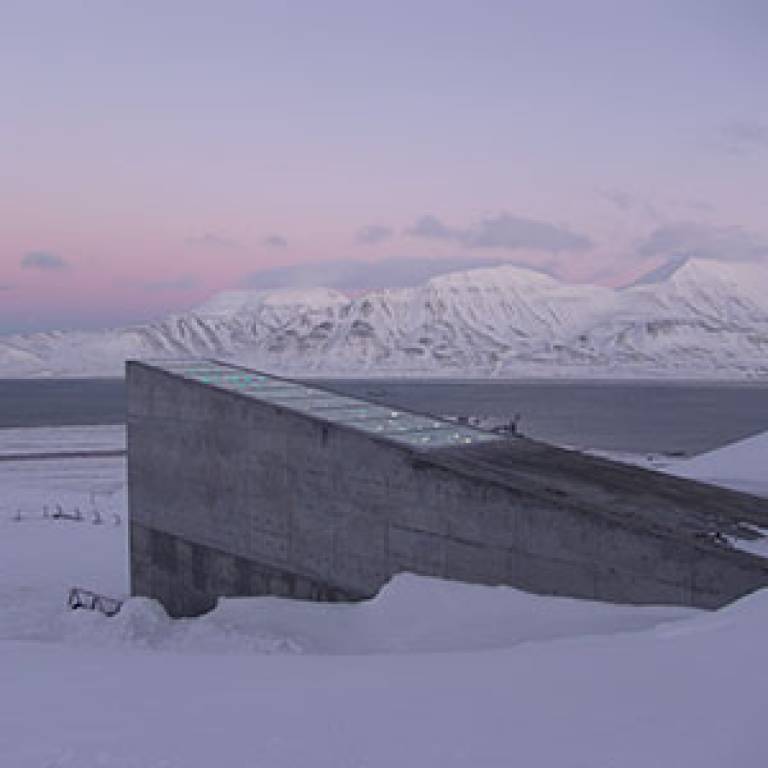Large AHRC grant awarded to UCL-led heritage project
19 September 2014
Dr Rodney Harrison (UCL Institute of Archaeology) has been awarded a £1.
 6million AHRC Large Grant to
lead an innovative research programme called 'Assembling Alternative
Futures for Heritage', one of three grants announced today by the Arts and
Humanities Research Council (AHRC).
6million AHRC Large Grant to
lead an innovative research programme called 'Assembling Alternative
Futures for Heritage', one of three grants announced today by the Arts and
Humanities Research Council (AHRC).
The grants have been announced under the AHRC's Care for the Future: Thinking Forward Through the Past theme, which aims to generate new understandings of the relationship between the past and the future, and the challenges and opportunities of the present.
Assembling Alternative Futures for Heritage (AAFH) is an interdisciplinary research programme which aims to develop a broad, international and cross-sectoral comparative framework for understanding 'heritage' in its most expansive sense. It begins from the premise that heritage is fundamentally concerned with assembling futures.
The collaborative, multi-sited research programme will compare a range of conventional and unconventional future-making practices from a number of different heritage and heritage-like fields. It aims to facilitate co-creation and sharing of practical knowledge across these various domains of practice - rarely considered collectively - to contribute to the development of innovative and sustainable approaches to heritage conservation.
Dr
Harrison, Principal Investigator for the programme,
said: "This constitutes one of the largest critical comparative
studies of heritage and heritage-like practices to have ever been undertaken.
We will draw on a range of experimental and more conventional methodologies
based in visual, material and sensory ethnography and contemporary archaeology,
and incorporating documentary research, creative artistic practice, film
making, collaborative mapping, trans-sectoral knowledge exchange events and
data-gathering and generating exhibitionary experiments.
I am very excited to have been given the opportunity to work with such a broad range of partner institutions and researchers on this significant programme of research, which will help us to understand how current speculations regarding what (and how) to conserve in the present actively shape our material, ecological and social futures.
Dr Rodney Harrison (UCL Institute of Archaeology)
"I am very excited to have been given the opportunity to work with such a broad range of partner institutions and researchers on this significant programme of research, which will help us to understand how current speculations regarding what (and how) to conserve in the present actively shape our material, ecological and social futures. "
Dr Harrison is joined by Co-Investigators Caitlin DeSilvey (University of Exeter), Cornelius Holtorf (Linnaeus University, Sweden) and Sharon Macdonald (University of York), Senior Research Assistant Martha Fleming, Senior Creative Fellow Antony Lyons, and a team of postdoctoral researchers and PhD students.
They will work closely with more than 20 academic and non-academic partner organisations and will be guided in their work by an esteemed advisory board drawn from senior representatives of a number of their partner organisations, representing a range of different fields of practice, to ensure their research has wide impact amongst practitioners, policy makers and publics.
The AHRC Large Grant
(AH/M004376/1) contributes approximately £1.6million to an overall project cost
of approximately £2.4million, including in-kind and actual partner
contributions of over £220,000 and three additional Doctoral studentships,
funded separately by Exeter, York and UCL respectively.
Image
- The Nordic Genetic Resource Center, one of the research team's partners, is responsible for the operation and management of the Svalbard Global Seed Vault. The seed vault aims to safeguard the world's most important plant genetic resources for food and agriculture with a maximum level of security. (Credit: Mari Tefre/Svalbard Global Seed Vault)
 Close
Close

